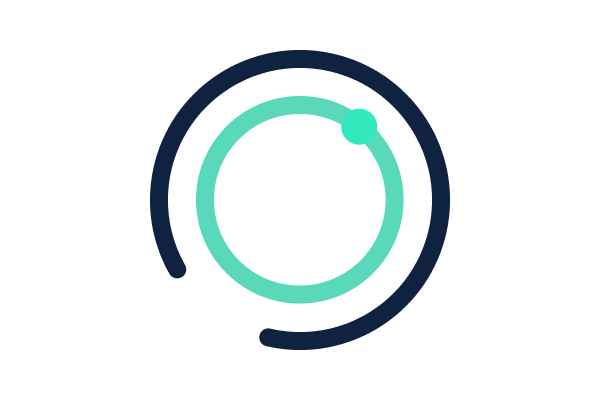This commit fixes a wrong timeout in the integration test logic that added a 120-second sleep cycle for tests when a particular server (Bindle or Spin) wasn't ready, as opposed to waiting for one second, for a total of 120 times when needed. This commit also temporarily removes the unused release CI workflow altogether. Signed-off-by: Radu Matei <radu.matei@fermyon.com> |
||
|---|---|---|
| .cargo | ||
| .github/workflows | ||
| .vscode | ||
| crates | ||
| docs | ||
| src | ||
| templates/spin-http | ||
| tests | ||
| wit/ephemeral | ||
| .gitignore | ||
| Cargo.lock | ||
| Cargo.toml | ||
| LICENSE | ||
| Makefile | ||
| build.rs | ||
| readme.md | ||
readme.md
Project Spin

Spin is a tool that allows developers to build, publish, and deploy WebAssembly workloads. It is the next version of the Fermyon runtime.
Take Spin for a spin
- Take Spin for a spin
- Build Spin CLI
- Build and Run an HTTP Application with Spin
- Publishing Interfaces
Build Spin CLI
Clone this repository and build the Spin CLI:
$ git clone https://github.com/fermyon/spin
$ cd spin && cargo build --release
Build and Run an HTTP Application with Spin
Generate an HTTP Application Using a Spin Template
Add a new Spin template based on the templates/spin-http directory from this
repo:
$ spin templates add --local templates/spin-http --name spin-http
$ spin templates list
+---------------------------------------+
| Name Repository URL Branch |
+=======================================+
| spin-http local |
+---------------------------------------+
Create the application:
$ mkdir helloworld
# TODO: the name and path where the app is generated is wrong.
$ spin new --repo local --template spin-http --path .
Build the Application
In the application directory:
$ cargo build --release
Run the Application Locally
The configuration file spin.toml contains the information required for Spin to
run the application locally:
$ export RUST_LOG=spin_engine=info,spin_http,wact=info
$ spin up --app spin.toml
2022-02-06T02:44:08.810806Z INFO spin_http_engine: Processing request for application spin-hello-world on path /hello
2022-02-06T02:44:08.810897Z INFO execute{component="hello"}: spin_http_engine: Executing request for component hello
2022-02-06T02:44:08.810918Z INFO execute{component="hello"}: prepare_component{component="hello"}: spin_engine: Preparing component hello
2022-02-06T02:44:08.810936Z INFO execute{component="hello"}: prepare_component{component="hello"}: store: spin_engine: Creating store.
2022-02-06T02:44:08.811318Z INFO execute{component="hello"}: spin_http_engine: Request URI: "/hello"
2022-02-06T02:44:08.811553Z INFO execute{component="hello"}: spin_http_engine: Response status code: 200
2022-02-06T02:44:08.811715Z INFO execute{component="hello"}: spin_http_engine: Request finished, sending response.
The application is now ready, after starting, send a request using
curl -i localhost:3000/hello:
$ curl -i localhost:3000/hello
HTTP/1.1 200 OK
content-length: 12
date: Sun, 06 Feb 2022 02:44:08 GMT
I'm a teapot
Publishing Interfaces
In the example above, the interface (.wit file) was copied over to the local
HTTP application directory. You can also publish interfaces to a bindle registry
for others to consume as well as pull interfaces from a bindle registry to use.
The example below creates and publishes the spin http interface and then walks
through how to consume it in the HTTP application from the previous example.
Publish the Spin HTTP Interface
Push the Spin HTTP interface to the registry (from the root of this repository). This step, together with starting the registry, will not be required once we set up a canonical registry instance:
$ wact interface publish --name fermyon/http --version 0.1.0 wit/ephemeral/spin-http.wit
Use Interface in HTTP Application
- Update
Cargo.tomlto include the following dependency, component and interface information:
[...]
[dependencies]
# The Wact dependency generates bindings that simplify working with interfaces.
wact = { git = "https://github.com/fermyon/wact", rev = "93a9eaeba9205918dc214a6310c0bb6e33c0e3c8" }
[workspace]
# Metadata about this component.
[package.metadata.component]
name = "spinhelloworld"
# This component implements the fermyon/http interface.
[package.metadata.component.exports]
fermyon-http = { name = "fermyon/http", version = "0.1.0" }
- Update the application to use wact to generate and use rust bindings. In
src/lib.rs:
// Import the HTTP objects from the generated bindings.
use fermyon_http::{Request, Response};
// Generate Rust bindings for all interfaces in Cargo.toml.
wact::component!();
struct FermyonHttp {}
impl fermyon_http::FermyonHttp for FermyonHttp {
// Implement the `handler` entrypoint for Spin HTTP components.
fn handler(req: Request) -> Response {
println!("Request: {:?}", req);
Response {
status: 418,
headers: None,
body: Some("I'm a teapot".as_bytes().to_vec()),
}
}
}
-
Remove
*.witfiles from local HTTP application directory -
In the application directory, build the component:
$ cargo build --target wasm32-wasi --release
# OR
$ cargo component build --release
Run the application locally to test.